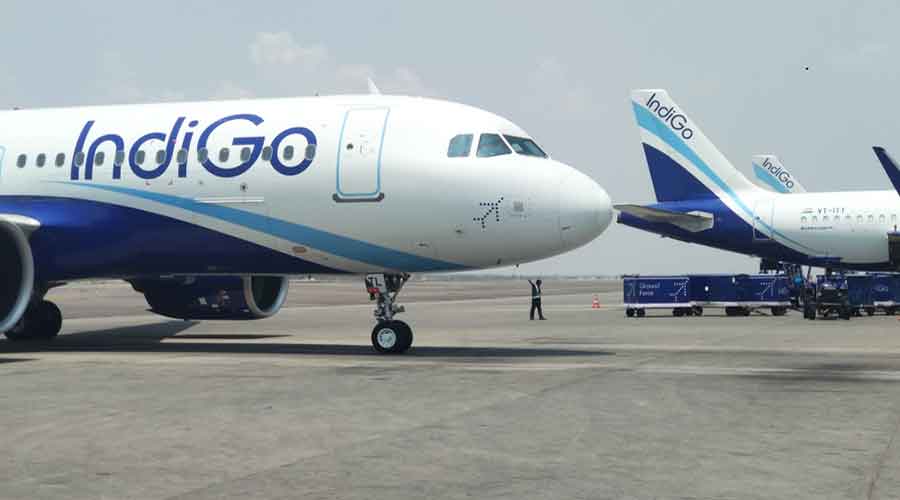The shareholders of InterGlobe Aviation, the parent of budget carrier IndiGo, on Thursday approved a resolution to amend the company’s articles of association (AoA) that lifts the restrictions on the promoters to sell their shares.
The approval marks a major turning point in the over two-year feud between promoters Rahul Bhatia and Rakesh Gangwal.
Speculation has been rife that on shareholder approval, Gangwal may sell a part of his stake in India’s largest airline with a market share of around 54 per cent.
Gangwal himself in July 2019 had said that he would not sell his shareholding and was in for the “long-haul’’.
Shareholding data with the stock exchanges show the promoters held around 74.44 per cent on September 30, 2021 — 36.61 per cent with the Gangwals and 37.83 per cent with Bhatia’s InterGlobe Enterprises Pvt Ltd.
The duo had called for an EGM to scrap a clause in the articles of association (AoA) that gave them the right of first refusal on each other’s shareholding.
InterGlobe Aviation said in a regulatory filing after market hours that its shareholders have approved the special resolution for amendment to its AoA. Details of the voting showed that while 35,57,611,30 votes were polled, around 35,57,602,61 or 99.99 per cent were in favour of the resolution.
Observers said the approval means the two promoters can now sell their holding to a third party without informing the other.
This comes at a time IndiGo is staring at greater competition with the entry of Rakesh Jhunjhunwala’s Akasa and from a revived Jet Airways along with the Tatas who will soon have Air India under their wings.
Speaking at the EGM that was held through video-conferencing, IndiGo CEO Ronojoy Dutta said Omicron had led to some moderation in bookings, though he added that they still remain above September levels. He also told the shareholders that IndiGo is emerging stronger from the Covid-19 crisis.
Differences between the two promoters surfaced in July 2019 after Gangwal wrote a letter to the Securities and Exchange Board of India (Sebi) seeking its intervention to address corporate governance issues.
He had also raised questions about certain related party transactions (RPTs) between IndiGo and the entities of the IGE group. He alleged that these related party transactions did not have the approval of the board and the audit committee and were often backdated.
Gangwal said there were misrepresentations in the company’s red herring prospectus (RHP) dated October 16, 2015. The charges were rejected by the IGE group.
Bhatia later moved the London Court of International Arbitration (LCIA) against Gangwal. The LCIA in September said the AoA be amended and that the clause regarding the RoFR be done away with. It had given them 90 days to implement its directions. Gangwal had then moved the Delhi high court seeking directions for calling an EGM. However, the court did not allow the plea.
The particular clause in AoA says if a shareholder proposes to sell shares outside the stock exchange, he will have to first notify the other shareholder disclosing the number of shares, the proposed price, the identity of the purchaser, the proposed closing date for the transfer apart from any other material terms of the agreement between the seller and the buyer.










